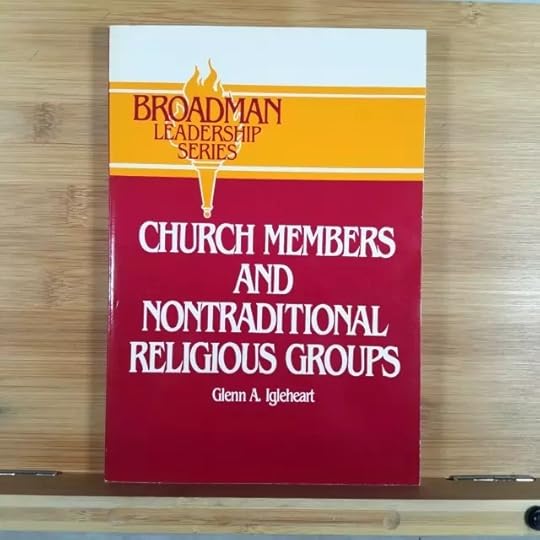Book Review: “Church Members and Nontraditional Religious Groups” by Glenn A. Igleheart
I am not sure how useful it is to do a review for a book that is 40 years old and no longer being printed. However, when the book was recommended to me, I easily found a second-hand copy online.
“Church Members and Nontraditional Religious Groups” by Glenn A. Igleheart was published by Broadman Press in 1985. It deals with the issue of “cults.” The writer is careful to clarify that “cult” is a perjorative term for many and that he is using the term only with great caution. It looks at how to deal with those (church members, family members, friends) who may be in a certain relationship with a nontraditional religious group. Some of these, like the Unification Church or the Hari Krishnas in 1985 would most certainly be described by many as cults. Others, like Jehovah’s Witness and Mormonism, have characteristics that don’t fit so neatly with what people in the 1970s and 1980s would label as cultic. These relationships include (1) being in the process of joining or considering joining a group, (2) already being a confirmed member, (3) having doubts about the group, (4) exiting the group, and (5) post-group adjustment.
The book is pastoral in the sense that it looks to be written primarily to pastors serving church members, members of the broader church family, and members of the community. The book is also centered on counseling as it addresses the process of speaking to those in such a group and to friends and family of those in a group. The strategy is balanced in my perspective. One should seek to be friendly and supportive, but also address issues of truth.
I find the book valuable and (strangely) rather timeless. It uses a lot of examples and many of those examples were more relevant back in the 70s and 80s (such as more on communes and nothing on neo-pagan groups). I would argue that this does not really detract from the book. Using the “Worldwide Church of God” (a group that has changed greatly over the decades) or the Hari Krishnas (a group that is much less visible today) does not cause a problem. I would argue that examples that we don’t relate to intimately can be useful in that we can think about them at an emotional distance.
The book does discuss the issues related to “cult deprogramming.” Igleheart points out the practical and ethical problems associated with it. Since then, laws have been set up (or enforced) that criminalize some of the practices that the author disapproves of. However, even though these practices may be not formally practiced now, there are many practices that we can easily fall into or be tempted by that are equally problematic. The author encourages all Christians to be informed and prepared in what to do, and to be supportive as a community of believers within a larger community.
I strongly recommend this book, if you can find it.




